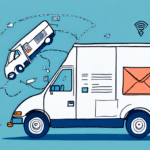1. Reduce Your Monthly Bills
Managing monthly bills effectively can significantly enhance your financial health. Start by evaluating your cable and internet subscriptions:
- Downgrade Your Plan: Assess your current usage and consider if you can opt for a lower-tier plan that still meets your needs.
- Switch Providers: Research and compare different service providers to find more competitive rates.
Energy bills also offer opportunities for savings:
- Energy-Efficient Appliances: Replace old appliances with energy-efficient models to reduce electricity consumption.
- Smart Usage: Turn off lights and unplug appliances when not in use.
For more comprehensive strategies, refer to the U.S. Department of Energy's Energy Saver guide.
2. Embrace Minimalism to Save Money
Minimalism encourages a lifestyle focused on reducing clutter and prioritizing essential possessions. This approach can lead to substantial savings in various areas:
- Reduced Spending: By purchasing fewer items, especially non-essential ones, you can lower your overall expenses.
- Quality Over Quantity: Investing in high-quality items that last longer reduces the need for frequent replacements.
Additionally, minimalism shifts your focus towards experiences rather than material goods, allowing for more meaningful and cost-effective ways to enjoy life.
Learn more about the benefits of minimalism from the American Psychological Association.
3. DIY Home Maintenance
Taking on home maintenance tasks yourself can lead to significant cost savings:
- Replace Air Filters: Regularly changing air filters improves HVAC efficiency and extends system life.
- Basic Repairs: Learning to paint, patch walls, and fix minor issues can eliminate the need for professional services.
Sealing air leaks is another effective way to enhance energy efficiency:
- Weather Stripping: Apply weather stripping to doors and windows to prevent drafts.
- Seal Gaps: Use caulk to seal any cracks or gaps in your home's exterior.
For step-by-step guides, visit the Home Depot DIY section.
4. Smart Shopping and Bulk Buying
Optimizing your shopping habits can lead to considerable savings:
- Buy in Bulk: Purchasing non-perishable items like pasta and canned goods in bulk often costs less per unit.
- Plan Your Meals: Planning meals in advance helps avoid impulse buys and reduces food waste.
Additionally, using coupons and discount codes can further lower your grocery bills:
- Digital Coupons: Utilize apps and websites that offer digital coupons for various stores.
- Loyalty Programs: Sign up for store loyalty programs to access exclusive discounts and rewards.
Explore more savings tips from NerdWallet.
5. Effective Budgeting and Financial Planning
Creating and adhering to a budget is fundamental to financial stability:
- Track Your Expenses: Use budgeting software or apps to monitor where your money is going.
- Set Financial Goals: Define short-term and long-term goals to guide your spending and saving habits.
Avoiding impulse purchases is crucial for sticking to your budget:
- Wait Before Buying: Implement a waiting period for non-essential purchases to determine if they are necessary.
- Use Cash: Paying with cash can make you more aware of your spending and prevent overspending.
For comprehensive budgeting advice, visit the Consumer Financial Protection Bureau.
6. Lowering Transportation and Energy Costs
Save on Transportation
Transportation expenses can be streamlined through various methods:
- Public Transit and Carpooling: Utilizing public transportation or sharing rides can reduce fuel and maintenance costs.
- Fuel-Efficient Vehicles: Switching to a fuel-efficient or hybrid vehicle can significantly lower gas expenses.
Additional tips include walking or biking for short distances, which not only saves money but also promotes a healthier lifestyle.
Reduce Energy Consumption
Lowering your energy usage contributes to smaller bills and a reduced carbon footprint:
- Programmable Thermostats: These devices optimize heating and cooling, leading to energy savings.
- LED Lighting: Switching to LED bulbs can reduce energy consumption by up to 80% compared to traditional bulbs.
For more energy-saving strategies, refer to the ENERGY STAR website.
7. Cost-Effective Entertainment and Travel
Affordable Entertainment Options
Enjoying entertainment without overspending is achievable through:
- Host Gatherings: Organize game nights or movie nights at home instead of dining out.
- Explore Free Events: Take advantage of local parks, hiking trails, and free community events.
Budget-Friendly Travel
Traveling doesn't have to break the bank:
- Book in Advance: Secure lower prices on flights and accommodations by booking early.
- Use Rewards Programs: Participate in travel rewards programs to earn points and discounts.
If traveling isn't feasible, consider a staycation to explore and enjoy your local area economically.
Conclusion
Implementing these cost-saving strategies can empower you to take control of your finances and work towards a secure financial future. Start with small changes, remain consistent, and gradually incorporate more techniques to maximize your savings without compromising your quality of life.






















